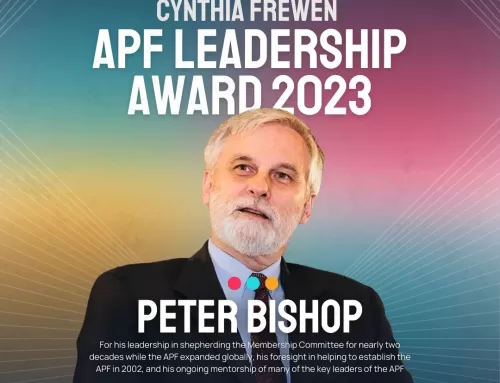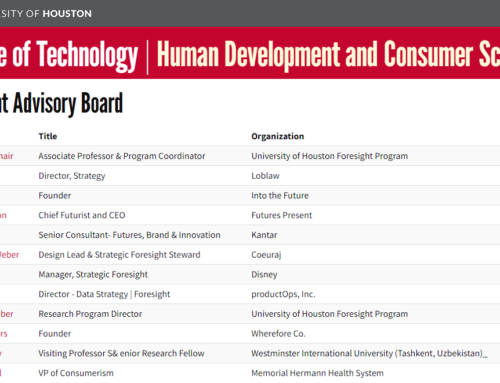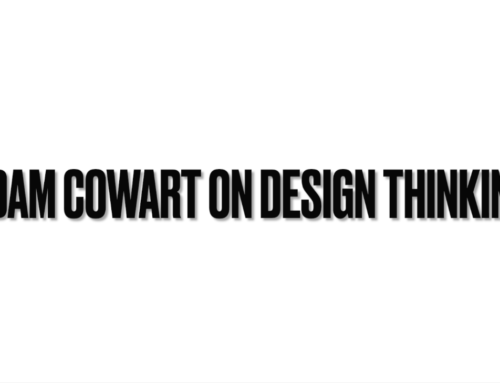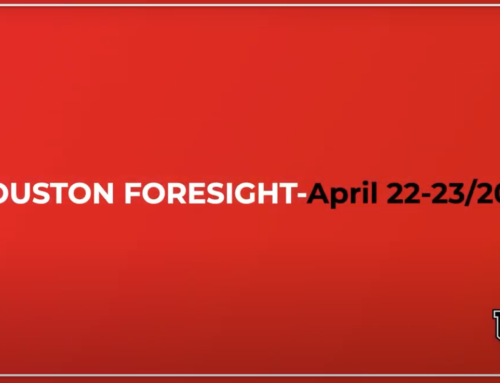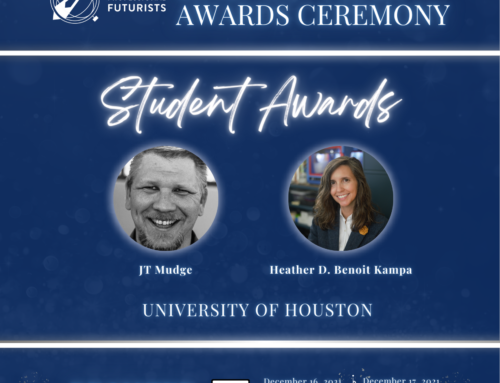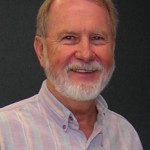 We recently featured Adjunct Faculty Terry Grim for winning the 2013 APF Most Significant Futures Works Award. We can’t stop there, however, as Professor Emeritus Oliver Markley of the Foresight program came in second for his piece for “A New Methodology for Anticipating STEEP Surprises.” Oliver taught in the Foresight (then Futures Studies at UHCL) program for many years and has stayed involved with the program by occasionally delivering lectures and participating in our Spring Gathering. When I read an early draft of his “Steep Surprises” paper that described the innovative concept of “Type 2 Wildcards,” I immediately asked if he’d brief our “Futures Research” class on it, which has graciously did. It is nice to see that the APF MSFW agreed that this is an important piece of work.
We recently featured Adjunct Faculty Terry Grim for winning the 2013 APF Most Significant Futures Works Award. We can’t stop there, however, as Professor Emeritus Oliver Markley of the Foresight program came in second for his piece for “A New Methodology for Anticipating STEEP Surprises.” Oliver taught in the Foresight (then Futures Studies at UHCL) program for many years and has stayed involved with the program by occasionally delivering lectures and participating in our Spring Gathering. When I read an early draft of his “Steep Surprises” paper that described the innovative concept of “Type 2 Wildcards,” I immediately asked if he’d brief our “Futures Research” class on it, which has graciously did. It is nice to see that the APF MSFW agreed that this is an important piece of work.
In my view, Oliver’s piece provides a much-needed conceptual breakthrough in the wildcard realm. Futurists typically define wild card (aka “STEEP surprises”) as a plausible future event that is estimated to have low probability but high impact should it occur. His article introduces a Type II Wild Card, which is defined as having high probability and high impact as seen by experts if present trends continue, but low credibility for non-expert stakeholders of importance. The addition of credibility as a criterion makes a whole lot of sense. It helps explain how some things which seem obvious to futures (high probability and impact) can be seen as wildcards from the larger social perspective, because they have low or zero credibility. In simpler terms, it’s not a wildcard in the expert realm, but it is for everyone else, and thus it tends to get overlooked.
Many futurists, myself included, have struggled to introduced wildcard to clients because they don’t see the relevance or don’t know what to do with them. The Type 2 Wildcard offers a new possibility for making the concept relevant. I look forward to applying the idea in my work and I’m sure others do as well. Congratulations, Oliver! Andy Hines
